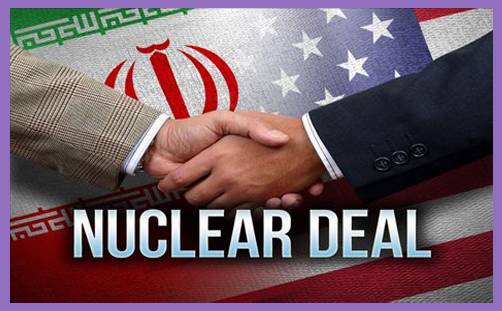United Nations (Reuters): France made a new plea on Monday for the United States to preserve the 2015 Iran nuclear deal and suggested its provisions expiring after a decade could be strengthened, as US President Donald Trump again criticized the agreement as “deeply flawed.”
The pact between Tehran and six world powers, which calls for Iran to curb its nuclear program in return for relief from economic sanctions, is under threat as Trump must decide by Oct. 15 whether to certify Iran is keeping its end of the bargain.
If Trump, who as recently as Thursday accused Iran of violating “the spirit” of the deal, chooses not to certify, the pact could unravel, possibly triggering a regional arms race.
The Republican president, who has called the agreement struck under his Democratic predecessor, Barack Obama, “the worst deal ever negotiated,” made no secret of his views during a meeting with French President Emmanuel Macron.
“The president believes that the JCPOA is deeply flawed, and he did share his views with President Macron about how he believes the deal is flawed,” Brian Hook, director of policy planning at the US State Department, told reporters. The pact is formally called the Joint Comprehensive Plan of Action.
“The president was very candid with him about what he thinks are the shortcomings. ... He told him that it is under review and that they are taking a hard look at the Oct. 15th decision and more broadly how to fix the Iran deal,” Hook said.
Hook said the two also discussed an integrated strategy against Iran that would take into account what he described as Iran’s support for terrorism, its ballistic missile program, its destabilization in the Middle East and other aggressions.
Asked if he planned to stick with the pact, Trump earlier told reporters as he began a meeting with Israeli Prime Minister Benjamin Netanyahu on Monday: “You’ll be seeing very soon.”Israeli officials have said changes Israel wants in the JCPOA include lengthening the 10-year freeze on Iran’s nuclear development program or even making that suspension permanent and destroying centrifuges rather than just halting their operation.
The deal was negotiated with Iran by the United States, Russia, China, Britain, Germany and France. The six will meet with Iran at the ministerial level on Wednesday.


